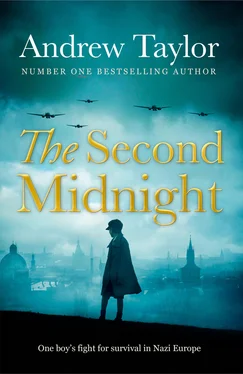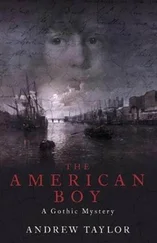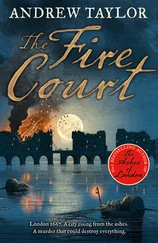For a moment Hugh said nothing. His mind was full of what had happened yesterday. It wouldn’t have been so bad if he could have understood what the two men were saying.
‘I’d like to learn Czech.’
‘Indeed? An interesting choice. You think you may be here for some time?’
‘I don’t know, sir. But I’d like to know more of what’s going on.’
‘That, my dear Kendall, is a desire which does you credit. Most people prefer to know less rather than more. I wonder if we should add German to our syllabus? It is a language which is often heard in Prague. And of course you will need to have an idea of the historical background. Languages are not static things; they exist in time; they grow, flourish, and decay like organic matter. In a word, languages are alive. Like plants, their development is intimately connected with the soil and climate in which they grow.’ He smiled at Hugh, revealing an ill-fitting set of discoloured false teeth. ‘Yes, I think we have our modern trivium: Czech, German and history.’
Hugh looked blankly at him. Dr Spiegel appeared not to notice.
‘You will remember, of course, that the trivium provided the foundations of learning in the Middle Ages. Every scholar began with its three subjects, the essential tools of grammar, rhetoric and logic. But – mutatis mutandis , as it were – other subjects are essential if one is to live in contemporary Prague. It is most unfortunate, but these days one must be practical. At least I am well qualified in this respect: my mother was Czech, my father a Sudeten German, and my lifelong study has been history.’
Dr Spiegel stirred in his chair. His mouth moved as if he was talking silently to himself. He pulled out his watch and consulted it. His hand shook so much that he had to steady it against his leg.
‘Before we begin, I think we should drink a toast to our joint enterprise.’ He peered anxiously at Hugh. ‘Would this meet with your approval?’
Hugh nodded. It seemed a little early for elevenses, but perhaps the routine was different in Czechoslovakia.
Dr Spiegel went into the next room; before the door closed, Hugh caught a glimpse of a sink piled high with crockery. The door’s catch failed to engage and the door swung six inches back into the kitchen. Hugh saw his tutor take a brown, unlabelled bottle from a wall cupboard; he took a long swallow from it and put it away. When he returned to the living room, he was carrying another bottle and two large teacups, neither of which had saucers.
‘Glass breaks so easily,’ Dr Spiegel said apologetically. Taking great care to avoid spillages, he poured precisely the same quantity of a translucent golden fluid into each of the cups. He raised his cup in salute and drank with solemn concentration. Hugh took a sip and blenched: the taste was bitter.
Dr Spiegel refilled his own cup. ‘Czech, of course,’ he remarked suddenly, ‘is a Slavonic language in origin, though much influenced by German. It emerged as an independent language in the Middle Ages, at much the same time as the Czechs achieved political independence. Indeed, our progenitors used a single word, jazyk , to denote both “language” and “nation”. As you know, it is written in Latin characters; this was an early development, despite the problems associated with the transliteration of specifically Slav sounds—’
‘Please, sir,’ Hugh said desperately. ‘I don’t understand.’
The excitement drained away from Spiegel’s face. ‘Forgive me, Pan Kendall. I was giving you a condensed version of the introductory lecture I used to deliver to my first-year students. Perhaps it is not altogether appropriate to our present circumstances.’ He drank again and stared into the cup as if enlightenment was hidden there.
‘Sir, I really want to be able to understand what people are saying on the streets – what the signs mean – to know how to ask for something in a shop.’
‘Ah. I see you favour the practical approach.’ Dr Spiegel looked relieved. He poured himself another cupful, which emptied the bottle. He flicked a fingernail against the glass. ‘I have an idea. We shall further your education and, if you have no objection, my convenience at one and the same time. If you return to the road and walk to the left, you will come to a shop on the corner. There you may purchase our lunch. A humble collation – bread, a few slices of sausage and some more of this excellent Pilsener. The modern Czech, my dear Kendall, makes two things superlatively well – guns and lager.’
The first day established a pattern that they followed with little variation for the next few weeks. In the mornings they studied languages – Czech or German, according to Spiegel’s whim. The afternoons were devoted, at least in theory, to general knowledge and history.
The old man proved to be a surprisingly efficient teacher, particularly in the first few hours of the day. He gave Hugh a grounding in the grammar of the two languages, but for most of the time they concentrated on speaking them.
Dr Spiegel revealed a talent for mimicry. He would invent little scenes, and he and Hugh would act them out. He gave Hugh a dictionary and a grammar, and made him puzzle out the main stories in the newspaper. Hugh often did his tutor’s shopping.
Dr Spiegel drank his way steadily through every day. His main source of nourishment seemed to be the strong export Pilsener which he had produced on that first morning. On later occasions, Hugh drank sweet black tea which he made himself in the cramped and evil-smelling kitchen. His tutor rarely drank tea; but he would sometimes bring out the little brown bottle between cups of lager.
As the day wore on, Dr Spiegel’s step would become unsteady and his eyes had difficulty in focusing. But his courtesy to Hugh remained unchanged; nor did the alcohol affect his speech.
In the afternoons he talked. Most of his monologues concerned two inextricably entwined subjects – himself and the recent history of central Europe. He spoke with nostalgia of the heady days of the Great War when he had fought with the Czech Legion on the Allied side. He described the early years of the newly created republic of Czechoslovakia and the democratic constitution he had helped to frame. He was particularly proud of the course on Czech nationalism which he and his wife had founded at the Charles University.
But there were bad days as well, when the nostalgia was supplanted by bitterness and the brown bottle came out of the kitchen and stood beside Dr Spiegel’s chair. He was obsessed by the weakness of his country – an infant democracy surrounded by increasingly hostile neighbours; its allies, Britain and France, were hundreds of miles away and lacked both the will and the means to intervene. Across the border was Germany, gleefully exploiting her neighbour’s political problems and racial divisions.
‘Hitler wants to carve us up like a big sausage,’ Spiegel said on one afternoon, early in March. ‘Our minorities rush to join the feast. They do not realize that they will be eaten too.’
The rape of the Sudetenland, Spiegel claimed, was but a symptom of what he regarded as a wider evil – Hitler’s perversion of the sacred traditions of nationalism.
‘With all the means at his disposal, that foul little man has encouraged the separatist nationalist movements in our Slovakian and Ruthenian provinces. Quite simply, he plans to undermine Bohemia and Moravia, which form the core of Czechoslovakia.’ Spiegel raised a trembling hand and hammered it down on the arm of his chair. ‘Once he invades us, Hitler will be exposed as the fraud he is: all his previous conquests could be justified, if only speciously, on the grounds that they brought Germans into the Reich. But Bohemia and Moravia are chiefly inhabited by Czechs, not Germans. You grasp my point, my dear Kendall?’
Читать дальше












